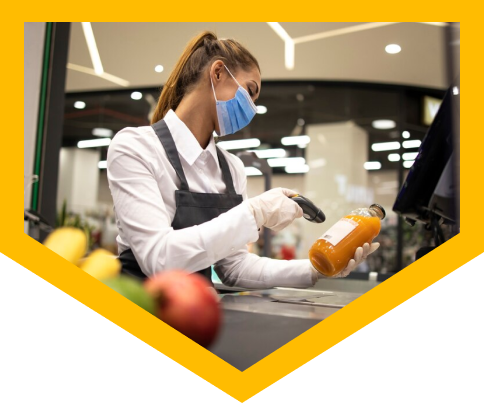Start Your Journey in Food Safety and QA – Study in Canada
- info@safetymastery.com
- +91 7200322134


What is Food Safety and Quality Assurance Certification?
What is Food Safety and Quality Assurance Certification?
Food Safety and Quality Assurance (QA) certification is a professional credential that validates a person’s knowledge and skills in maintaining safety, hygiene, and quality standards in the food industry. This certification ensures that individuals are trained to identify potential food hazards, prevent contamination, and enforce quality control practices throughout the food production process.
These programs typically cover topics such as: Food microbiology and safety regulations, Hazard Analysis and Critical Control Points (HACCP), Good Manufacturing Practices (GMP), Food quality management systems (like ISO 22000 or FSSC 22000), Product labeling, traceability, and auditing procedures.

Why Study Food Safety and Quality Assurance in Canada?
Canada is globally recognized for its strict food safety regulations, advanced food production systems, and strong focus on public health. Choosing to study Food Safety and Quality Assurance in Canada offers students both local expertise and global relevance in the growing food industry.
Here’s why Canada is a top destination for this field—and why a Safety Diploma Course Training in Canada can be a smart investment for your future:
Global Industry Standards
Canadian institutions align their training with international food safety systems such as HACCP, ISO 22000, and GFSI, preparing graduates to work anywhere in the world.
High-Quality Education and Industry-Relevant Curriculum
Courses blend theory with practical, hands-on training. Programs often include lab work, site visits, and internships with leading food manufacturers and regulatory bodies.
Strong Career Opportunities
Graduates of food safety and quality programs are in high demand across Canada’s food processing, manufacturing, retail, and export sectors. A Safety Diploma Course Training in Canada can lead to roles such as Food Safety Officer, QA Technician, HACCP Coordinator, and Regulatory Compliance Analyst.
Growing Food Industry in Canada
Canada is one of the world’s largest food exporters. This growth drives demand for skilled professionals who can ensure products meet strict domestic and international standards.
Focus on Public Health and Safety
Studying in Canada helps you understand the country’s strong commitment to consumer protection, environmental safety, and ethical food production—all key themes in modern QA training.
Opportunities for International Students
Many colleges and universities offer post-graduate work permits, giving international students a path to gain work experience and potentially apply for permanent residency after completing their diploma.
Course Curriculum & Key Learning Areas
Core Subjects Covered
| Module | Key Topics |
| Food Microbiology & Hygiene | Microorganisms in food, contamination, sanitation, microbial testing |
| HACCP Implementation | Principles of HACCP, control points, hazard analysis, safety planning |
| Good Manufacturing Practices | Employee hygiene, equipment sanitation, facility design, documentation |
| Food Laws & Regulations | CFIA guidelines, labeling laws, Codex, ISO 22000, GFSI compliance |
| Quality Assurance Systems | ISO systems, TQM, SPC, audits, corrective actions |
| Food Chemistry & Analysis | Food composition, additives, contaminants, nutritional labeling |
| Packaging & Storage Technology | Preservation techniques, shelf life, material safety |
| Data & Documentation | Audit reports, traceability systems, food safety record-keeping |
Lab Work & Practical Exposure
- Hands-on microbiology and chemistry labs
- QA audits and food testing simulations
- Plant tours and industry site visits
- Use of quality control tools and software
Optional & Advanced Modules
- Allergen Management & Food Fraud
- Risk Assessment & Crisis Management
- Environmental Sustainability in Food Production
Real-World Training
Most programs include co-op placements, internships, or capstone projects, giving students practical experience with Canadian food manufacturers, labs, and regulatory agencies.
Eligibility Criteria and Admission Requirements
To enroll in a Food Safety and Quality Assurance course in Canada, applicants must meet certain academic and language requirements. While specific criteria may vary slightly between institutions, the general admission guidelines are as follows:
Get Courses Details
Get Courses Details
Academic Requirements
A bachelor’s degree or diploma in a related field such as:
- Food Science
- Microbiology
- Chemistry
- Biotechnology
- Agriculture
- Environmental Science
Some graduate certificate programs may accept applicants with relevant work experience in food processing, safety, or quality assurance, even if their academic background differs.
English Language Proficiency (for international students)
Applicants whose first language is not English must provide proof of language proficiency. Most colleges and universities accept one of the following:
Course Duration, Fees, and Study Options
When considering a Food Safety and Quality Assurance course in Canada, it’s important to understand the typical length of study, cost, and delivery formats. These programs are designed to be flexible and career-focused, making them accessible to both domestic and international students.
Course Duration
- Graduate Certificate Programs:
Duration ranges from 8 months to 1 year (2 to 3 academic terms).
These are full-time, intensive programs designed for quick job readiness. - Bachelor’s Degree Programs (with food safety specialization):
Typically 3 to 4 years of full-time study. - Master’s Programs:
Duration is generally 1 to 2 years, depending on thesis or coursework options.

Course Fees
Fees vary based on the institution, program type, and student residency status.
Student Type | Graduate Certificate | Bachelor’s / Master’s |
Domestic Students | CAD $4,000 – $8,000 | CAD $6,000 – $12,000/year |
International Students | CAD $14,000 – $20,000 | CAD $18,000 – $30,000/year |
Note: Fees may include tuition, lab access, course materials, and student services. Always check with the specific college or university for updated costs.
Study Options
Most Canadian institutions offer flexible learning formats to accommodate a range of learners:
- Full-Time On-Campus: Ideal for students seeking immersive learning and access to labs and industry facilities.
- Online or Hybrid Learning: Select programs offer partially or fully online options, which are great for working professionals or remote learners.
- Co-op or Internship Opportunities: Many programs include work placements, giving students valuable hands-on industry experience.
Choosing the right duration and format depends on your background, career goals, and availability. Whether you’re looking to quickly upskill or pursue an advanced degree, Canada offers a program structure to match your needs.
Career Opportunities in Food Safety and QA
Completing a Diploma in Food Safety or other Food and Safety courses in Canada opens up a wide range of career paths in the fast-growing food processing and quality assurance industry. With global demand for safe, traceable, and high-quality food products, trained professionals are more essential than ever.
Graduates from a Food Safety Officer course or similar QA programs are well-prepared to work across various sectors including food manufacturing, agriculture, packaging, retail, hospitality, and regulatory agencies.
Popular Job Roles After Graduation
- Food Safety Officer
Ensure compliance with safety regulations, conduct audits, and implement food hygiene practices at processing plants or food service facilities. - Quality Assurance Technician / QA Analyst
Monitor production processes, maintain records, and ensure products meet quality standards. - HACCP Coordinator
Develop and manage Hazard Analysis and Critical Control Points plans to minimize risks in the food production chain. - Food Safety Auditor / Compliance Specialist
Evaluate systems and practices against food safety regulations and provide recommendations for improvement. - Microbiology or Lab Technician
Work in food testing labs to detect contaminants, pathogens, or chemical residues. - Food Regulatory Affairs Assistant
Help companies navigate food safety laws, labeling regulations, and international compliance requirements.
Industries Hiring Food Safety & QA Professionals
- Food and beverage manufacturing
- Dairy, meat, and seafood processing
- Government inspection and regulatory bodies (e.g., CFIA)
- Grocery chains and food distribution companies
- Catering services and institutional kitchens
- Food export and import businesses
Salary Expectations
Entry-level roles in food safety and QA typically offer salaries ranging from CAD $40,000 to $55,000 per year, while experienced professionals can earn $60,000 to $90,000+, especially in auditing, regulatory, or management roles.
Career Growth with Certification
A Diploma in Food Safety or a recognized Food Safety Officer course not only boosts your employability but also acts as a stepping stone to more advanced roles in food regulation, quality systems management, or international consultancy.
